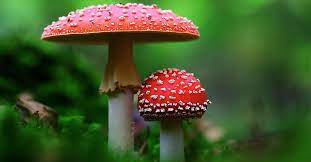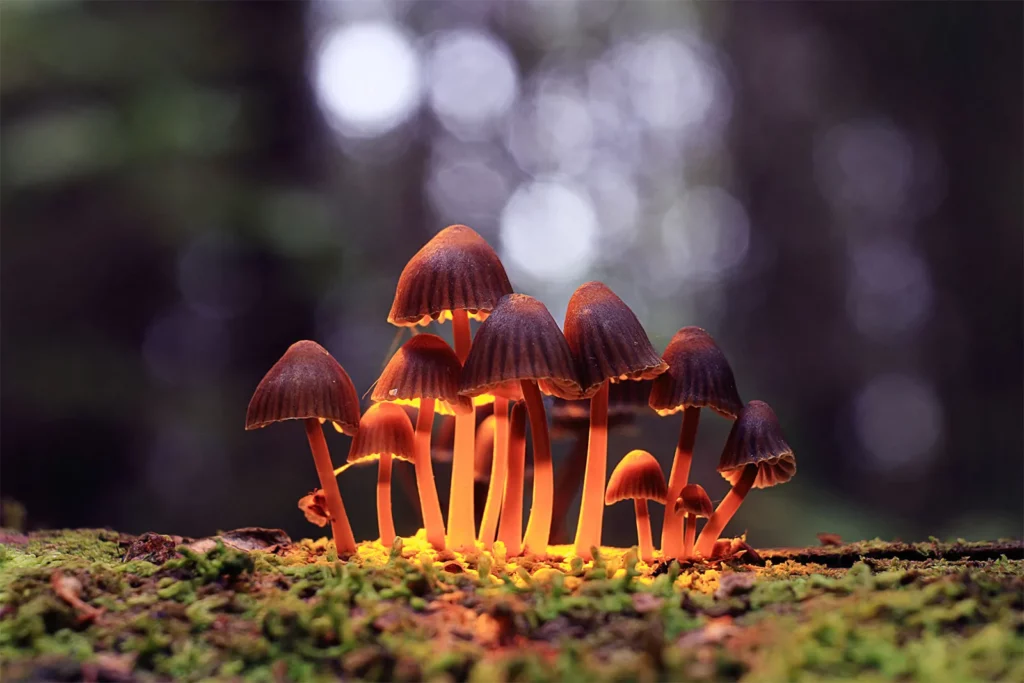Introduction
The human brain is a masterpiece of adaptability. It constantly rewires itself in response to experiences, emotions, and environmental changes—a phenomenon known as neuroplasticity. In recent years, scientists and wellness enthusiasts alike have become increasingly interested in how certain natural compounds might enhance this ability. One such compound is psilocybin, the active ingredient in magic mushrooms. But can magic mushrooms truly help the brain “rewire” itself for the better? Let’s explore the science, the potential benefits, and what current research reveals about this fascinating connection.
Understanding Neuroplasticity

Neuroplasticity refers to the brain’s remarkable ability to reorganize and form new neural connections throughout life. This adaptability is what allows us to learn new skills, recover from brain injuries, and adapt to changing circumstances. In essence, neuroplasticity is the biological foundation of personal growth and emotional resilience.
However, factors such as chronic stress, trauma, and mental health disorders can reduce the brain’s flexibility. When neuroplasticity slows down, people often find themselves stuck in rigid thought patterns, negative behaviors, and emotional loops. This is where psilocybin enters the picture, offering a potential way to reopen those neural pathways.
What Is Psilocybin and How Does It Work?
Psilocybin is a naturally occurring psychedelic compound found in over 200 species of mushrooms. When ingested, the body converts psilocybin into psilocin, a substance that interacts with serotonin receptors in the brain—particularly the 5-HT2A receptor.
This interaction causes a temporary alteration in brain activity, leading to changes in perception, mood, and cognition. But beyond the short-term psychedelic effects, researchers have discovered that psilocybin may also encourage the growth of new neural connections.
The Science Linking Magic Mushrooms and Neuroplasticity
Recent studies suggest that psilocybin may enhance neuroplasticity by promoting new synaptic connections between neurons. A groundbreaking study published in Cell Reports found that psilocybin increased both the number and strength of neural connections in mice. Even more remarkable, these changes persisted long after the psilocybin had left their systems.
In humans, brain imaging studies show that psilocybin temporarily disrupts the brain’s default mode network (DMN)—a region linked to self-referential thinking, rumination, and ego. When the DMN “quietens,” new communication pathways between different brain regions open up, allowing for fresh perspectives and emotional breakthroughs.
This neurological flexibility may explain why psilocybin has shown promise in treating depression, PTSD, and addiction—conditions often associated with rigid neural activity and repetitive thought cycles.
Potential Benefits of Enhanced Neuroplasticity
1. Breaking Negative Thought Patterns
People struggling with depression or anxiety often find themselves trapped in repetitive, self-defeating thoughts. By promoting new neural connections, psilocybin may help “reset” these patterns, offering mental clarity and emotional relief.
2. Emotional Healing and Trauma Recovery
In therapeutic settings, psilocybin-assisted therapy allows individuals to confront deep emotional wounds in a safe, supported environment. The combination of emotional openness and increased neuroplasticity can lead to profound healing experiences.
3. Improved Creativity and Problem-Solving
With the brain’s usual pathways temporarily reorganized, many users report bursts of creativity, enhanced imagination, and new ways of thinking. These effects can linger, fostering long-term creative growth.
4. Increased Mindfulness and Connection
By quieting the ego and enhancing connectivity between different parts of the brain, psilocybin may promote a greater sense of unity and mindfulness. Many users describe feelings of deep connection—to themselves, others, and the world around them.
How Magic Mushrooms May Support Long-Term Mental Health
One of the most intriguing aspects of psilocybin research is its lasting impact. Unlike traditional antidepressants, which require ongoing use, psilocybin’s effects can persist for weeks or even months after a single guided session.
This may be due to its ability to “open” the brain to change—essentially giving individuals a window of heightened neuroplasticity during which new habits, perspectives, and emotional patterns can take root. When paired with therapy or mindfulness practices, the results can be transformative.
For instance, clinical trials at institutions like Johns Hopkins University and Imperial College London have demonstrated that psilocybin-assisted therapy can lead to significant, long-term reductions in depression and anxiety symptoms—especially when conventional treatments have failed.
Safety and Responsible Use
While the potential benefits are exciting, it’s important to remember that magic mushrooms are not without risks. Psilocybin is a powerful psychoactive substance, and unsupervised use can lead to anxiety, confusion, or distressing experiences—especially in unsafe environments or without proper mental preparation.
For those considering exploring psilocybin for mental health or self-development, it’s essential to do so under professional supervision—preferably as part of a legal clinical study or guided therapy session. Additionally, psilocybin remains a controlled substance in many regions, so understanding local laws is crucial before use.
The Future of Psilocybin and Brain Health
The growing body of evidence surrounding psilocybin and neuroplasticity is ushering in a new era of psychedelic-assisted therapy. Researchers are now exploring its potential for treating depression, addiction, anxiety, and even neurodegenerative diseases.
What’s especially compelling is that psilocybin doesn’t just mask symptoms—it may help the brain rebuild itself from within. As more studies uncover how these “magic” molecules interact with our neural networks, we move closer to redefining how we approach mental health and healing.
Also Read: Microdosing Mushrooms Review: Subtle Shifts in Mood and Focus
Final Thoughts
Magic mushrooms and neuroplasticity represent one of the most promising intersections of nature and neuroscience. While more research is needed, early findings suggest that psilocybin may indeed help the brain “rewire” for the better—enhancing flexibility, breaking unhealthy patterns, and promoting lasting emotional well-being.
As science continues to unlock the mysteries of psilocybin, we’re reminded of a profound truth: sometimes, the path to healing and growth lies not in escaping the mind—but in expanding it.

